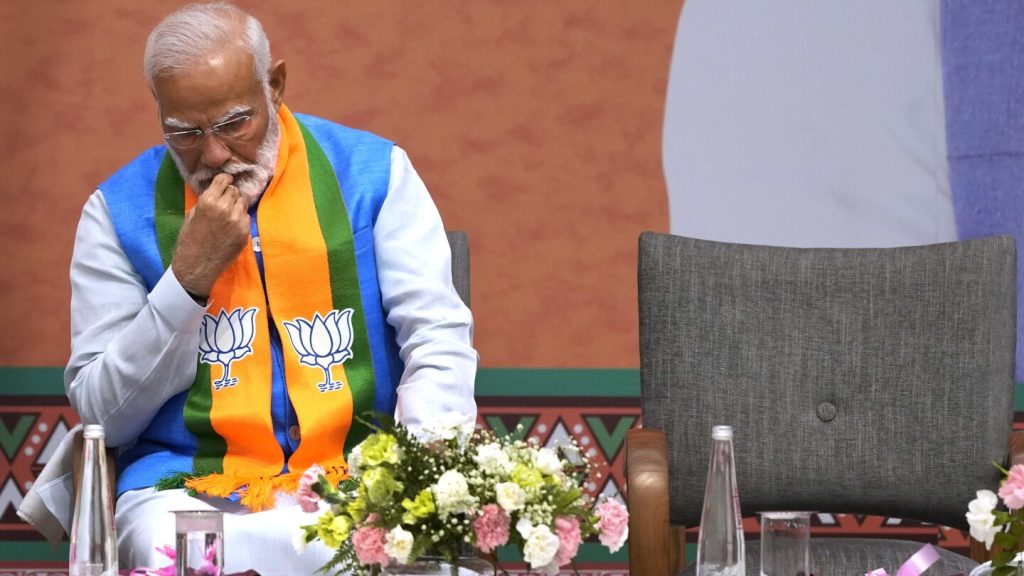The recent election results in India have left Prime Minister Narendra Modi in uncharted territory, as his party fell short of a majority in the lower house of parliament. This unexpected outcome has forced Modi to consider forming a coalition government, a departure from his usual style of assertive and go-it-alone politics. This shift may require Modi to negotiate and work with coalition partners, something he has little experience with and may find challenging.
The election results came as a surprise, with Modi’s Bharatiya Janata Party winning 240 seats, short of the 272 needed to form a government on its own. While the coalition it belongs to, the National Democratic Alliance, secured a majority in the lower house, this will likely require Modi to rely on partners to govern, marking a significant setback for the usually dominant leader. This vulnerability represents a new chapter in Modi’s political career, as he has never needed coalition partners to govern since taking office in 2014.
Despite Modi’s previous strong electoral performances and popularity, the recent results indicate a receding “Modi wave,” revealing a level of electoral vulnerability that was not anticipated. The election highlighted issues such as unemployment, inflation, and inequality, which Modi’s opponents focused on, but his campaign offered few solutions to address these concerns. As Modi prepares to govern with a coalition, he may need to adopt a more collaborative approach to accommodate the interests of smaller regional parties in his alliance.
Modi’s governance style, marked by centralized power and a penchant for control, may face challenges as he navigates the need for a stable coalition. While he remains in a position of power, the BJP’s lackluster performance in the election has diminished his aura of invincibility, leaving him more reliant on coalition partners for stability. The resurgence of the opposition, led by the Congress party, could also pose challenges to Modi’s agenda, including his controversial Hindu nationalist policies and actions.
Critics of Modi’s policies, such as the citizenship law and religious tensions against Muslims, argue that they have fueled intolerance and weakened India’s democracy. As Modi faces a more collaborative political landscape, his ability to push through policies could face fiercer challenges from a revitalized opposition. The future of Indian politics remains uncertain as Modi navigates this new political landscape, where coalition politics and collaborative governance may become essential for his leadership.


